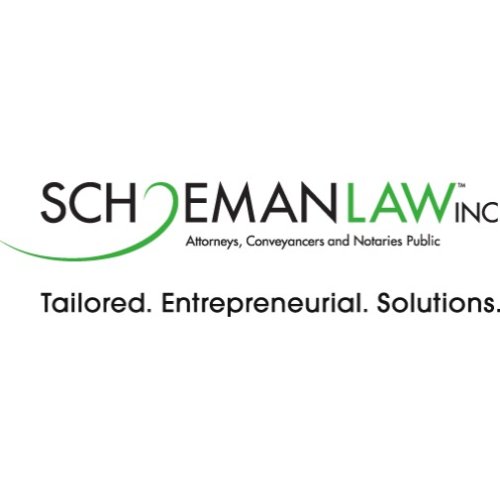Best Commercial Litigation Lawyers in Cape Town
Share your needs with us, get contacted by law firms.
Free. Takes 2 min.
List of the best lawyers in Cape Town, South Africa
South Africa Commercial Litigation Legal Articles
Browse our 2 legal articles about Commercial Litigation in South Africa written by expert lawyers.
- Enforcing Foreign Commercial Debt Claims in South Africa
- South African courts generally require either a submission to jurisdiction or the attachment of assets to hear a case against a foreign entity. The Hague Service Convention streamlines the legal process by providing a standardized method for serving South African court papers on international defendants. International arbitration is often the... Read more →
- Recover Commercial Debt: Foreign Entities in South Africa
- South African courts generally require an attachment of property to establish jurisdiction over a foreign defendant who has no local presence. The Hague Service Convention streamlines the process of serving legal documents on entities located in member countries, reducing the risk of procedural challenges. International arbitration is often the most... Read more →
About Commercial Litigation Law in Cape Town, South Africa
Commercial litigation in Cape Town, South Africa refers to the process of resolving disputes that arise in the business context through the court system or, in some cases, alternative dispute resolution mechanisms. This area of law covers a variety of issues that can occur between companies, business partners, suppliers, clients, and other entities involved in commerce. Cape Town is a major economic hub, which makes commercial litigation particularly relevant for both large corporations and small businesses. The legal processes are governed by national legislation, such as the Companies Act and the Uniform Rules of Court, as well as regional practices specific to the Western Cape.
Why You May Need a Lawyer
There are many circumstances in which you may require the assistance of a commercial litigation lawyer in Cape Town. Some of the most common situations include:
- Contract disputes, such as disagreements over the terms, performance, or termination of a contract.
- Debt recovery cases, where a company is owed money and needs to take legal action to recover it.
- Partnership or shareholder disputes that may threaten the stability of a business.
- Disagreements arising from mergers, acquisitions, or business sales.
- Intellectual property disputes, such as cases involving trademarks, copyrights, or patents.
- Allegations of unfair competition or restrictive trade practices.
- Professional negligence or liability claims against businesses or professionals.
- Disputes relating to property transactions or leases involving commercial properties.
A lawyer can help you assess your case, understand your rights and obligations, and represent you in negotiations or court proceedings. Early legal intervention often leads to more favorable outcomes.
Local Laws Overview
In Cape Town, commercial litigation is primarily governed by South African national laws, but there are local procedures and courts to consider. Below are some key aspects:
- Courts: Commercial disputes are generally handled by the High Court of South Africa or the Magistrates' Court in Cape Town, depending on the value and complexity of the case.
- The Companies Act: This legislation regulates the formation, operation, and dissolution of companies and is often central to commercial disputes.
- Uniform Rules of Court: These govern the procedures lawyers and litigants must follow during litigation in the superior courts.
- Alternative Dispute Resolution: Mediation and arbitration are commonly used to resolve disputes before resorting to litigation, often saving time and costs.
- Prescribed Time Limits: Commercial claims must be brought within certain time frames, known as "prescription periods," which vary depending on the type of claim.
- Legal Costs: The losing party may be ordered to pay the legal costs of the winning party, but courts have discretion in this regard.
Frequently Asked Questions
What is commercial litigation?
Commercial litigation is the process of resolving disputes between businesses or within business relationships, usually through the court system or by alternative dispute resolution such as mediation or arbitration.
Which courts hear commercial litigation matters in Cape Town?
The Magistrates' Court and the High Court in Cape Town handle commercial litigation matters. The choice depends on the value and complexity of the dispute.
How long does it take to resolve a commercial litigation case?
The timeframe varies greatly based on the complexity of the case and court schedules. Simple matters may resolve in a few months, while complex disputes can take years.
What are the alternatives to going to court?
Common alternatives include mediation and arbitration. These methods can be faster and more cost-effective and are often required before litigation can proceed.
Do I always need a lawyer for commercial litigation?
While it is possible to represent yourself, commercial litigation is often complex, making it advisable to seek legal representation for the best outcome.
What are the typical costs involved in commercial litigation?
Costs include attorney and advocate fees, court fees, and possible expert witness charges. If you lose the case, you might also be ordered to pay part of the other party’s costs.
How do courts enforce judgments?
Courts in Cape Town can enforce judgments through mechanisms like garnishing wages, attaching assets, or liquidating a company's assets, depending on the situation.
What should I do if I receive a summons?
You should seek legal advice immediately. Failing to respond within the required time frames could result in a default judgment against you.
Can foreign companies litigate in Cape Town courts?
Yes, foreign entities can litigate in South African courts, but there may be additional requirements, such as appointing a local representative.
What is the role of expert witnesses in commercial litigation?
Expert witnesses provide specialized knowledge or opinions on technical aspects of a case, such as accounting, valuing businesses, or industry practices. Their evidence can be crucial in court decisions.
Additional Resources
If you are looking for further guidance or need to lodge a complaint or obtain information, the following resources may be helpful:
- Western Cape High Court - For court procedures, filing, and case information.
- Legal Practice Council - For assistance with finding a qualified attorney and reporting professional misconduct.
- South African Law Society - Offers general advice and a directory of legal practitioners.
- Companies and Intellectual Property Commission (CIPC) - For matters concerning company registration and information.
- South African Mediation Association - For information on alternative dispute resolution services.
Next Steps
If you believe you are facing a commercial dispute or anticipate potential litigation, consider the following steps:
- Gather all relevant documents including contracts, emails, payment records, and any correspondence related to the dispute.
- Contact a commercial litigation attorney with experience in Cape Town's courts. Many law firms offer initial consultations to assess your case.
- Discuss whether alternative dispute resolutions like mediation or arbitration might be suitable for your situation.
- Ensure you are aware of any time limits for taking legal action to avoid missing critical deadlines.
- Stay informed about the progress of your case and maintain regular communication with your lawyer.
Navigating commercial litigation can be complex, but with the right legal advice and preparation, you can protect your rights and your business interests.
Lawzana helps you find the best lawyers and law firms in Cape Town through a curated and pre-screened list of qualified legal professionals. Our platform offers rankings and detailed profiles of attorneys and law firms, allowing you to compare based on practice areas, including Commercial Litigation, experience, and client feedback.
Each profile includes a description of the firm's areas of practice, client reviews, team members and partners, year of establishment, spoken languages, office locations, contact information, social media presence, and any published articles or resources. Most firms on our platform speak English and are experienced in both local and international legal matters.
Get a quote from top-rated law firms in Cape Town, South Africa — quickly, securely, and without unnecessary hassle.
Disclaimer:
The information provided on this page is for general informational purposes only and does not constitute legal advice. While we strive to ensure the accuracy and relevance of the content, legal information may change over time, and interpretations of the law can vary. You should always consult with a qualified legal professional for advice specific to your situation.
We disclaim all liability for actions taken or not taken based on the content of this page. If you believe any information is incorrect or outdated, please contact us, and we will review and update it where appropriate.














